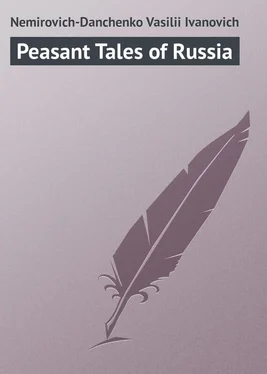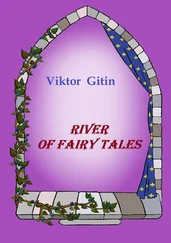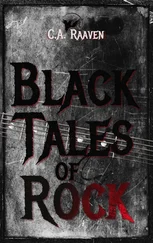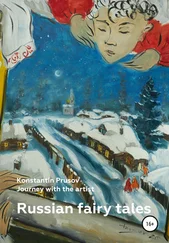Vasilii Nemirovich-Danchenko - Peasant Tales of Russia
Здесь есть возможность читать онлайн «Vasilii Nemirovich-Danchenko - Peasant Tales of Russia» — ознакомительный отрывок электронной книги совершенно бесплатно, а после прочтения отрывка купить полную версию. В некоторых случаях можно слушать аудио, скачать через торрент в формате fb2 и присутствует краткое содержание. Жанр: Русская классическая проза, на английском языке. Описание произведения, (предисловие) а так же отзывы посетителей доступны на портале библиотеки ЛибКат.
- Название:Peasant Tales of Russia
- Автор:
- Жанр:
- Год:неизвестен
- ISBN:нет данных
- Рейтинг книги:3 / 5. Голосов: 1
-
Избранное:Добавить в избранное
- Отзывы:
-
Ваша оценка:
- 60
- 1
- 2
- 3
- 4
- 5
Peasant Tales of Russia: краткое содержание, описание и аннотация
Предлагаем к чтению аннотацию, описание, краткое содержание или предисловие (зависит от того, что написал сам автор книги «Peasant Tales of Russia»). Если вы не нашли необходимую информацию о книге — напишите в комментариях, мы постараемся отыскать её.
Peasant Tales of Russia — читать онлайн ознакомительный отрывок
Ниже представлен текст книги, разбитый по страницам. Система сохранения места последней прочитанной страницы, позволяет с удобством читать онлайн бесплатно книгу «Peasant Tales of Russia», без необходимости каждый раз заново искать на чём Вы остановились. Поставьте закладку, и сможете в любой момент перейти на страницу, на которой закончили чтение.
Интервал:
Закладка:
"Look at that piece of bread!" he exclaimed.
The overseer looked in his turn. He saw another hand projecting from underneath the earth holding a slice of bread sprinkled with coarse salt in its curved fingers. But the owner of the hand was completely buried and invisible.
Other miners ran up. Each pushed his way to the front, eager to see, then having contemplated the huge mass, retired with his face working. One of them put his hand over his eyes in order not to see the terrible sight. Others stood motionless, their faces turned to the wall, as though petrified, and seemed unable to turn their heads. One young workman, pale with fear, had seized hold of another, who as though rendered temporarily idiotic, kept on passing his finger over the damp black wall of the rock.
"There are perhaps still living men below," stammered the overseer in a low voice. A plaintive groan as though in answer to his question came to his ears from below the mass of fallen earth. He approached it again, but the groan was not repeated.
"Now, comrades, we must dig!" he said.
"Come you there, Orefieff Smirnoff! Let us get to work."
So speaking, the overseer seized a miner by the hand, led him before the mass of collapsed earth and began to work with him. Hardly had they commenced than a second landslip took place, and the first mass of earth, pressed by the second which had just fallen, spread in liquid mud over the gallery. The two men only leaped back just in time.
The overseer could now properly estimate the magnitude of the disaster. It was evident that they were imprisoned and that no help could reach them from without. But at any rate they could breathe easily, and the fact that the air circulated in the gallery much more freely than before the accident, showed that there was still some means of ventilation left. They must hasten to take advantage of it. In a few hours the whole mine would collapse owing to this immense falling-in of earth.
"Come here quickly, comrades!" said the overseer.
In the twinkling of an eye they surrounded him.
"There is only one way of saving ourselves," he said, "and that is by reaching the old upper gallery. Let those who care for their lives follow me. Perhaps the shaft is still intact on that side. It ought to be so, for the air circulates freely. Call those who are working in the side galleries, and all of you come back here."
Some of the miners, who had preserved more presence of mind than the rest, rushed to the side galleries to summon their companions.
V
In less than a quarter of an hour, all the survivors of the catastrophe were collected. The overseer ordered them to provide themselves with torches, of which a reserve store was always kept in a dry place under the roof. Then the roll of names was called and seven miners were found to be missing. They had been buried alive and there was no hope of finding them.
"Now, listen to me, comrades," said the overseer. "I mean to be obeyed. Above all, no quarrelling; this is not the time for it. If we begin that, we are all lost. I think that if we try by the old gallery above we shall reach the shaft, which is possibly only flooded below, and may still be practicable above. You, Ivan, lean on somebody. Support the old man, comrades. We must not leave him here. You are the strongest of all, Terenti, help him. God will reward you. And now forward with God's help!"
He uncovered and crossed himself. Every one followed his example.
"What are we to do with these?" asked a miner, pointing to the dead bodies.
"Nothing. God has undertaken to bury them," answered several voices. "They are well where they are, for to die thus in an accident is the same thing as dying after confession. God Himself has willed it. Every one knows that among us in the Ural."
"Well, may the earth lie lightly upon them."
The overseer raised his torch still higher and the march began. The miners followed him, skirting the walls timidly. They soon reached the slanting passage leading to the old deserted gallery, which was above the one they were leaving.
The overseer entered it resolutely. Keeping closely together, the miners began to climb up the steep incline, stopping at moments, sometimes to see if they would be able to advance, sometimes to listen whether there was not a noise behind them, and whether the gallery they had just quitted had not fallen in. Before and behind them there was nothing but darkness, the only light being the flame of the torch. The miners walked in this dim light while the darkness seemed to follow them and dog their footsteps. They thus climbed upwards for twenty minutes, sometimes stooping when the roof came low, then walking erect when possible. If one of them found himself lagging a little behind, he hastened to rejoin the rest, their chief fear seeming now to be left alone, as those who loitered too long were sure to perish.
From time to time the overseer slackened his pace, in order to make sure that all were present; then he resumed the march.
Suddenly a strong gust of air made the flame of the torch waver. As the draught became stronger the flame was blown backward and became a long tongue of fire. A thick smoke blackened the miners' faces, but they took no notice of it and still advanced. The passage became wider. Remnants of old beams, decayed with age, projected from the walls and barred their way, but they strode over them. Suddenly the end of the procession found itself plunged in darkness – the torch had disappeared. The overseer and several others had finally reached the old gallery.
He gave the order to light several torches. Now they saw the old gallery stretching before them. The rock appeared intact. When the torches were raised, the roof was seen to be still solid, though here and there water filtered through. On the ground was a pool in the midst of which a slight gurgling noise was heard, evidently caused by a subterranean spring. A long thread of water escaped from this pool, flowing to the exit from the gallery which opened on the shaft. The miners followed it.
"Stop, comrades!" said the chief miner, turning round. "Wait for me here a moment. I will first go alone and see if there is any danger in proceeding farther."
In alarm, the miners halted, keeping close one to another. The overseer's torch gradually became more distant and soon was only a little luminous point in the darkness. Then they saw this little point stop, rise and sink again, finally rest motionless, and soon commence to grow larger as it approached. Then the overseer's figure was distinctly seen. His face was pale with alarm. He approached the miners without speaking, while they also remained silent.
"My friends, there is nothing left us but to die!"
A strong agitation ran through the crowd of miners. The overseer approached the exit of the gallery, and at the risk of falling into the shaft, he leant over and lit it up with his torch. Then one could see to what extent the mine had been damaged. Huge fragments of rock were displaced and threatened to fall at any moment. One great block undermined by the water had been detached immediately above the shaft, whose opening it obstructed, destroying all hope of getting out that way. As for the ladders, they existed no longer.
VI
"It is impossible to go back, my friends, for in an hour or two the other gallery will fall in."
The miners listened in silence to the words of the overseer, whose words sounded hollowly. The flame of the torch quivered, agitated by currents of air coming from all sides.
"Shall we wait here?" suggested a miner timidly.
"Wait for what?"
"Perhaps help will come from outside."
"What help can one hope for, when the mine has entirely collapsed? This gallery, moreover, affords no safety. When the one we have just left falls in, this will not resist long."
Читать дальшеИнтервал:
Закладка:
Похожие книги на «Peasant Tales of Russia»
Представляем Вашему вниманию похожие книги на «Peasant Tales of Russia» списком для выбора. Мы отобрали схожую по названию и смыслу литературу в надежде предоставить читателям больше вариантов отыскать новые, интересные, ещё непрочитанные произведения.
Обсуждение, отзывы о книге «Peasant Tales of Russia» и просто собственные мнения читателей. Оставьте ваши комментарии, напишите, что Вы думаете о произведении, его смысле или главных героях. Укажите что конкретно понравилось, а что нет, и почему Вы так считаете.












